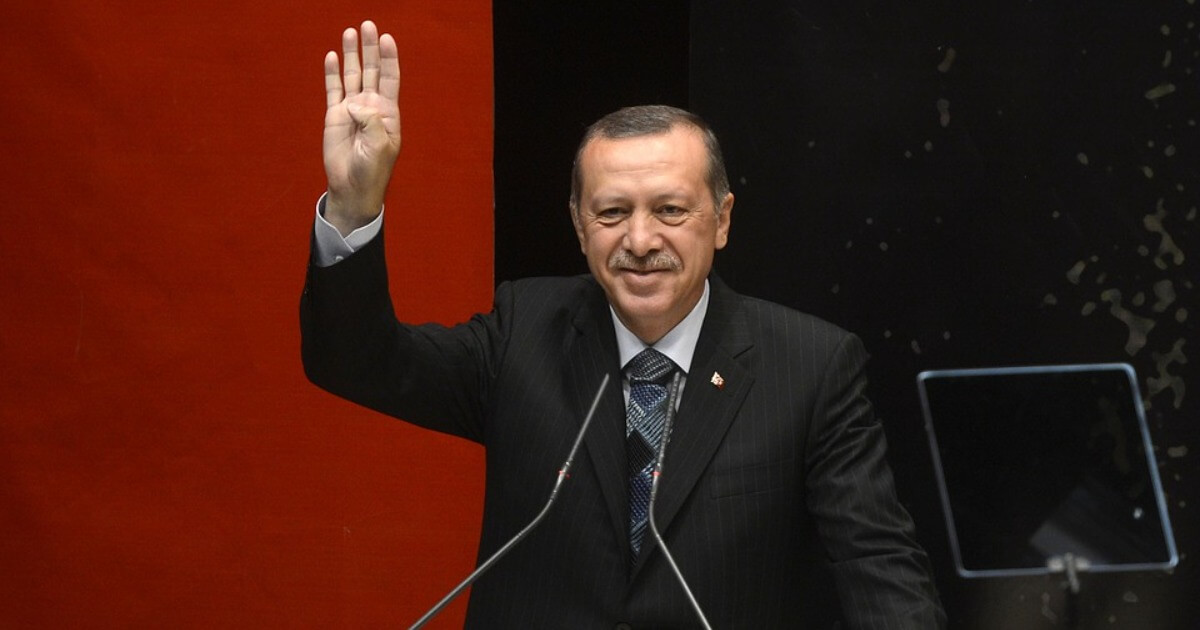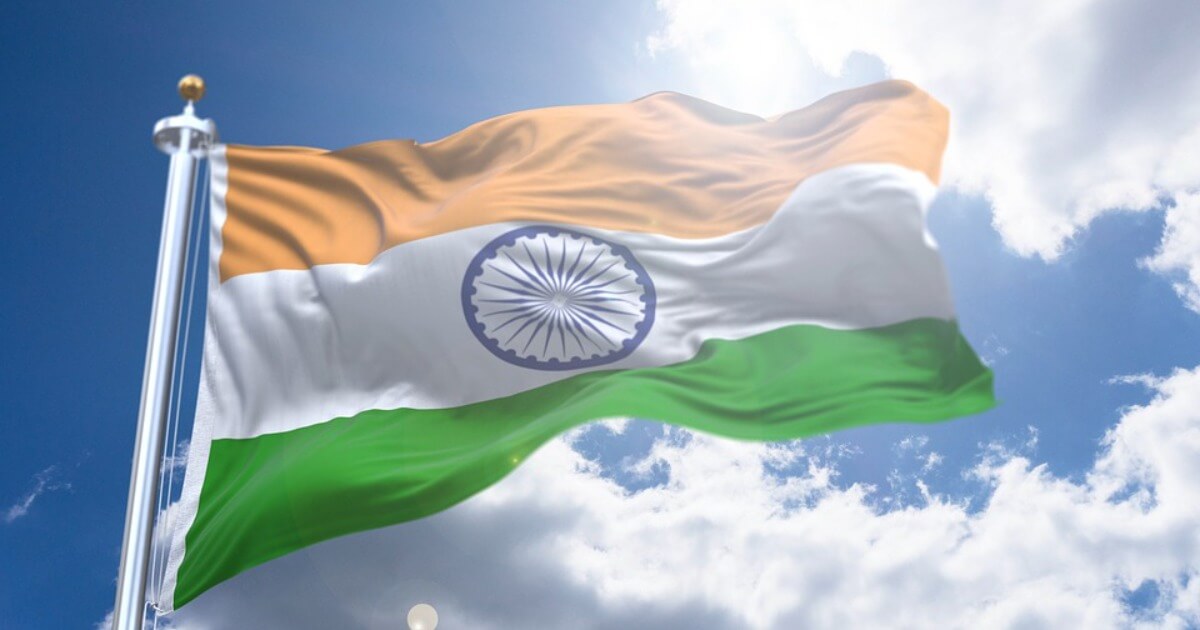Erdogan’s Balancing Act Between Russia and Ukraine
Turkey’s strongman leader has expressed support for the besieged country. He has also joined Putin’s assault on the Western media.
March 3, 2022

One day after Russia’s invasion of Ukraine, Turkish President Recep Tayyip Erdogan criticized the West “for being late in offering its concrete support” to Kyiv.
“The EU and all the rest of the West have failed to display a decisive and serious stance,” he said.
Since then, the United States, the United Kingdom, and the European Union have introduced sweeping sanctions against Russia and provided weapons to Ukraine.
Erdogan on the fence
Yet Erdogan has not taken any punitive action against Moscow, and only provided humanitarian aid to Kyiv.
But Ankara joined Moscow’s crackdown on Western media outlets, the latest episode of his balancing act designed to preserve his ties to both sides.
Hostile strongmen
Erdogan has drawn closer to his Russian counterpart, Vladimir Putin, since surviving an attempted coup in 2016.
The two strongmen share an ideological hostility to the West and a common interest in ensuring their own impunity amid Western efforts to counter illicit finance and human rights violations.
Reckless policies
Meanwhile, Ukraine has emerged as Ankara’s leading defense industry partner in aviation and engine technologies.
The Turkish government intensified its efforts to find alternative suppliers following a long list of arms export restrictions by Western governments worried about Turkey’s reckless policies at home and abroad, including its purchase of the S-400 air defense system from Russia.
Drones for Ukraine
Turkey’s turn to Ukraine to skirt Western defense restrictions, however, has complicated Erdogan’s relationship with Putin.
Since 2019, Turkey’s Baykar defense company exported over a dozen armed drones to Ukraine and took steps for joint production in the country, drawing Moscow’s ire.
Kyiv has already used these drones to strike Russian targets and praised them publicly.
Erdogan stays mum on the role of these drones produced by his son-in-law’s company.
Turkey’s deputy foreign minister stressed on March 3 that these drones do not constitute Ankara’s military aid to Ukraine and added, “these are products Ukraine purchased from a private Turkish company.”
Erdogan continues his balancing act by reiterating that he can neither abandon Russia nor Ukraine.
Ankara aiding the Kremlin
The Erdogan government continues to oppose sanctions against Russia, just as it challenged sanctions against Iran and Venezuela.
Ankara also aided the Kremlin by abstaining in the Council of Europe’s February 25 vote to suspend Russia.
Following the strong global reaction to Russia’s invasion, Turkey started to correct course. It joined 140 other countries on March 2 in condemning Moscow at the UN General Assembly.
Delayed response
The Turkish airspace is one of the last NATO airspaces that remains open to Russia.
It took Ankara three days following Ukraine’s request to recognize that Russia’s invasion constitutes war.
A day later it started implementing the 1936 Montreux Convention which restricts the passage of warships through the Turkish Straits.
Ironically, Ankara’s restrictions target not only the warships of the belligerent parties, Russia and Ukraine, under Article 19, but all warships, apparently under Article 21.
This would also block U.S. and NATO warships from entering the Black Sea.
Furthermore, Russian and Ukrainian warships returning to their Black Sea ports still retain their rights of passage.
Turkey’s spoiler role
Erdogan’s fence-sitting in Ukraine is in line with his previous enabling of Russia by playing a spoiler role within NATO. Ankara reportedly watered down the wording of NATO’s April 15, 2021 statement expressing solidarity with the United States following Russia’s cyberattacks on U.S. government agencies.
An emerging pattern
The Erdogan government did the same to NATO’s April 22, 2021 statement voicing concern over Russian military intelligence’s blowing up of ammunition storage depots in Czechia in 2014.
Ankara also blocked a NATO defense plan for Poland and the Baltic states for over six months until June 2020, prompting The New York Times to label Turkey “NATO’s ‘Elephant in the Room.”
Banning Western broadcasters
In the run up to Russia’s invasion of Ukraine, Erdogan has also joined Putin’s assault on the Western media.
Turkey’s media regulator, RTUK, posted three official notifications on February 21 threatening to block Western broadcasters.
Deutsche Welle (DW), Euronews, and Voice of America (VOA), were reportedly banned unless they obtained internet broadcast licenses within 72 hours.
Coming on the heels of Russia’s move to withdraw the press credentials of all DW staff and shutter the German public broadcaster’s Moscow studio, Ankara’s threat is facilitating the Kremlin’s campaign to silence Western media outlets.
Foreign media bans
RTUK’s move against these American, French, and German broadcasters marks the first time Turkey’s media regulator has targeted international media outlets using an authority created in 2019.
The media regulator used an authority the country’s Islamist-ultranationalist ruling coalition created with a 2019 regulation aimed at silencing critical online reporting
Russian and Chinese media exempt
Ankara has not made similar demands of either Russia’s public broadcaster Sputnik, whose Turkish service has thrived while pushing Kremlin propaganda.
Beijing’s propaganda channel, China Radio International has also remained untouched.
Censorship pushback
Both DW and VOA pushed back against Ankara by declaring they will appeal RTUK’s threatened ban.
Acting VOA Director Yolanda López said, “Voice of America’s independent journalism cannot be subject to this or any government’s control which results either in censorship or even the perception of it.”
DW Director General Peter Limbourg warned that RTUK’s move “does not relate to formal aspects of broadcasting, but to the journalistic content itself.”
He added that the 2019 regulation “gives the Turkish authorities the option to block the entire service based on individual, critical reports unless these reports are deleted. This would open up the possibility of censorship.”
Biden’s silence
In response to the Erdogan government’s targeting of Western broadcasters, the U.S. Senate Foreign Relations Committee on February 23 tweeted, “A free and independent media is critical and must not be subjected to government control or censorship. Turkey has to respect and ensure freedom of expression.”
The Biden administration, however, continued its radio silence over Turkey’s democratic backsliding and abysmal human rights record.
Erdogan’s impunity
If Erdogan knows that there will be no real consequences, he will persist with his plans to block Western media outlets.
Their independent reporting continues to embarrass him and his fellow autocrat Putin.
Much needed consequences
If the Biden administration wants to fulfill its promise of a human rights-centered foreign policy, it needs to stand behind the U.S. public broadcaster VOA and other Western media outlets threatened by autocratic regimes.
The European Union should also stand behind these outlets by warning Erdogan that there will be consequences for such hostile action.
Conclusion
As for Erdogan — if he wants to prove the veracity of his statements of support for Ukraine — the least he can do is to allow Western broadcasters to continue to reach Turkish audiences unhindered so that they can push back against the propaganda spouted by Russia’s and China’s Turkish services.
The Ukraine war is a unique opportunity for Erdogan to correct course and position Turkey on the right side of history.
Erdogan appears to be becoming cognizant of the threat Putin’s irredentism poses to all of Russia’s neighbors. This is precisely the right moment to join forces with NATO allies and strengthen the alliance’s deterrence of the Kremlin.
Takeaways
Turkey’s strongman President Erdogan criticized the West for failing to act decisively in defense of Ukraine. Yet Ankara has failed to impose sanctions on Russia.
Turkish President Erdogan has drawn closer to his Russian counterpart, Vladimir Putin, since surviving an attempted coup in 2016. The two strongmen share an ideological hostility to the West.
Ukraine has emerged as Ankara’s leading defense industry partner in aviation and engine technologies. Since 2019, Turkey’s Baykar defense company exported over a dozen armed drones to Ukraine.
Ankara joined Moscow’s crackdown on Western media outlets, the latest episode of his balancing act designed to preserve Erdogan’s ties to both sides.
If the Biden administration wants to fulfil its promise of a human rights-centered foreign policy, it needs to stand behind Western media outlets threatened by autocratic regimes.
If Turkey’s President Erdogan wants to prove his support for Ukraine, the least he can do is to allow Western broadcasters to continue to reach Turkish audiences.
Erdogan appears to be becoming cognizant of the threat Putin’s irredentism poses to all of Russia’s neighbors.

